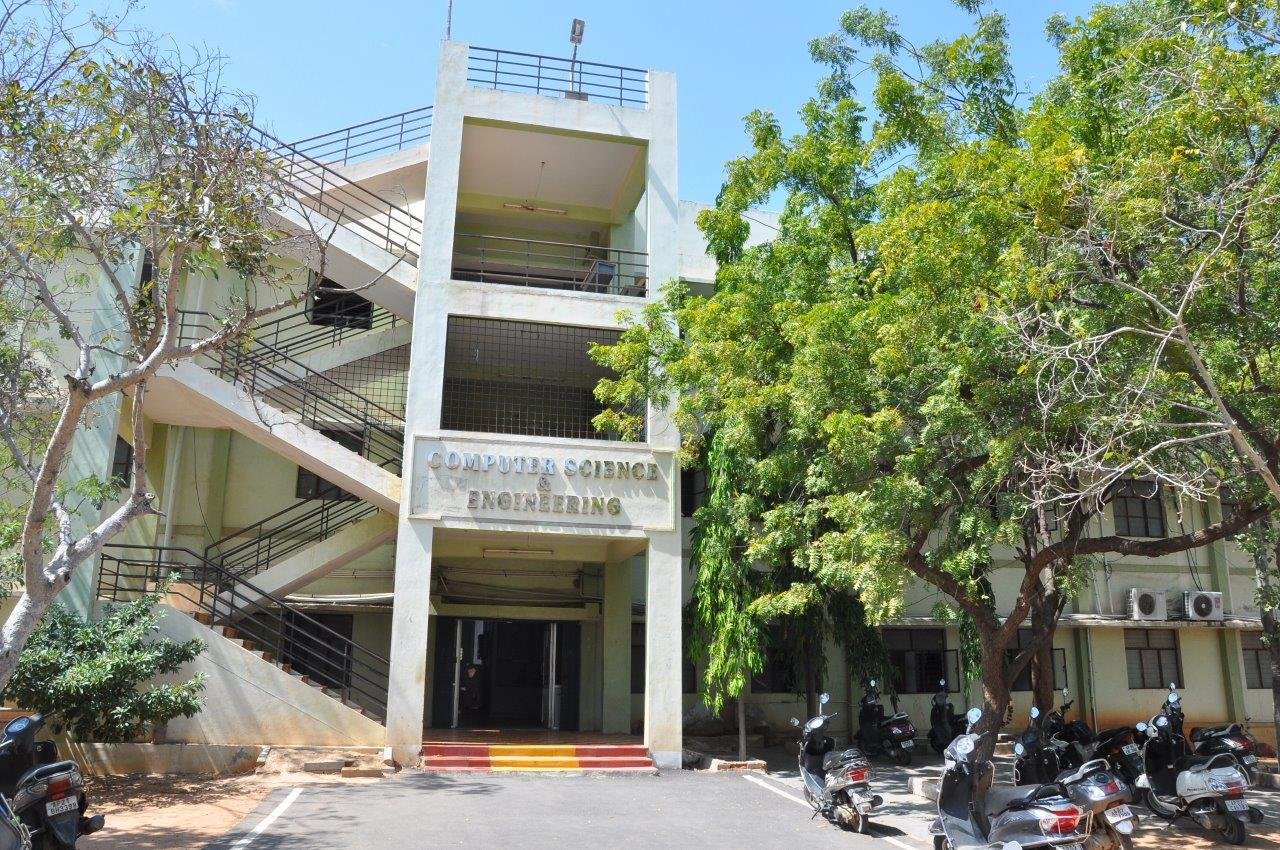
 A. SureshBabu
A. SureshBabu
|
| About Department |
|
The department of Computer Science Engineering has started offering B.Tech programme since 1989 with an intake of 15 students. The present intake for the Bachelor’s course is 60 and is accredited by NBA. For the last two decades the department has an enormous growth in student strength, infrastructure facilities number of courses being offered. Currently, The department is offering B.Tech, M.C.A, and three M.Tech programmes. M.C.A was started in the year 1996 with an intake of 30 and now it has been increased to 60. M.Tech in Computer Science was started in 2000, M.Tech in Software Engineering in 2001 and M.Tech in Artificial Intelligence in 2011. The intake to all these programmes is 25. The department is also having state of the art facilities for carrying out research Department is equipped with three laboratories, One lab is dedicated for B.Tech students, one for Master’s programmes, and one lab for the research to carry out their research. The research lab is unique in the department with Sun Solaris systems i and a high and server. Apart from this, The department maintains a central computing centre with over 200 systems where The 1st year students of all the branches are accessing Computing facilities within and beyond working hours. The entire campus is networked with 1 Gbps internet connectivity so as to enable the students to browse the internet. The department also possesses a library with over 1300 text books, 10 journals and around 45 e-learning resources.
|
| |
Programme Educational Objectives (PEOs):
 |
PEO 1.
Graduates of the program are adequately prepared to be employed in IT industries and Public Sector companies by forecasting a logical and practical approach to problem solving that would prepare them to function effectively as skilled computer engineers.
|
|
 |
PEO 2.
To impart students with solid foundation in mathematics, computing and core engineering fundamentals so as to help them to excel in their professional career or higher education. |
|
 |
PEO 3.
To promote lifelong learning by encouraging research and an attitude to apply the basic theories learnt during their graduation, leading to the creativity and productivity in their respective fields. |
|
Programme Outcomes (PEOs):
 |
PO 1.
Acquire the knowledge of mathematics, basic science, core and advanced fundamentals in the field of computer science. |
|
 |
PO 2.
Ability to identify and analyze the complex problems and solve them with the fundamental algorithms of computer science. |
|
 |
PO 3.
Ability to apply mathematical foundations, algorithmic principles, and computer science theory in the modeling and design of computer based systems. |
|
 |
PO 4.
Ability to design and conduct experiments, as well as to analyze and interpret data. |
|
 |
PO 5.
Ability to effectively use modern software tools and technologies for computer science and engineering practice. |
|
 |
PO 6.
Ability to develop solutions for societal needs with the use of computer science and engineering techniques. |
|
 |
PO 7.
Ability to understand and appreciate various professional, ethical, legal, security and social issues and responsibilities. |
|
 |
PO 8.
Ability to achieve professional and individual excellence and capability to work in teams. |
|
 |
PO 9.
Ability to communicate the engineering solutions effectively with the peers, customers and end users. |
|
 |
PO 10.
Ability to understand and apply management and core engineering principles in real time project management. |
|
 |
PO 11.
Attitude for independent and continuous learning to improve knowledge and professional competence. |
|
 |
PO 12.
Ability to Practice computer sciences and engineering in compliance with environmental standards.
|
|
|